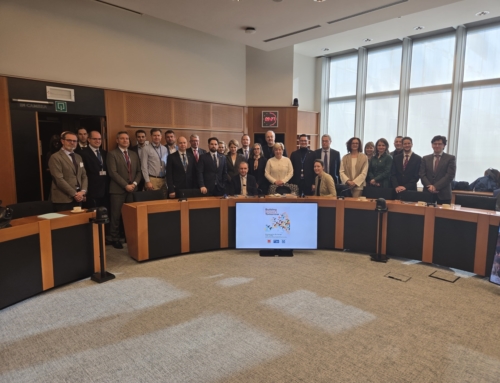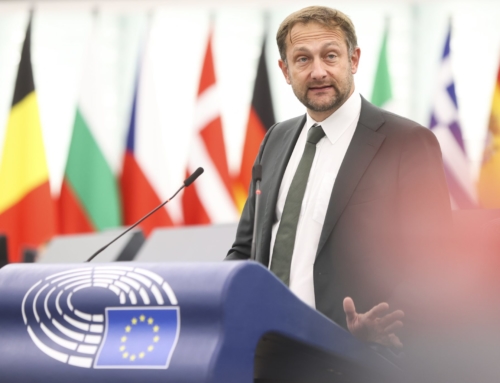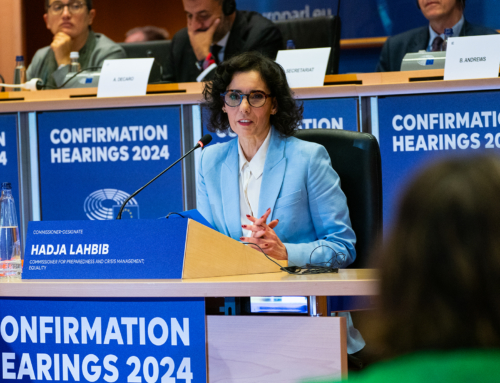Is the European Union finally considering the demographic challenges in Europe?
Over the last years, FAFCE has been raising awareness on the demographic challenges faced by European Countries: no EU Member State reaches the so-called replacement fertility rate of 2.1 children per woman. Today, as the pandemic severely stressed the concrete reality of intergenerational unbalance, and in the context of a looming economic crisis, the EU institutions seem to finally address the issue of demographic changes. Recently, the European Commission published its Report on the Impact of Demographic Change, which constitutes the starting point of the Commission’s work on demographic challenges, under the portfolio of the Vice President for Democracy and Demography, Dubravka Šuica.
In the first semester of 2020, the Croatian Presidency of the Council of the EU put demographic challenges as one of its top Presidency priorities. During the Covid-19 crisis, EU Ministers discussed the question of demographic challenges in the light of the recovery plans and the Council invited Member States to “promote and emphasise adequate and coordinated policies that provide different kinds of financial and other support for families, in particular for those raising children”. Meanwhile, the European Parliament published on June 6th a briefing on “Demography on the European agenda: Strategies for tackling demographic decline” and the Committee on Regional Development (REGI) is currently drafting a report on “Reversing demographic trends in EU regions using cohesion policy instruments”. Consultative bodies of the EU contributed also to the discussion, with an Exploratory opinion of the European Economic and Social Committee and an ongoing Opinion of the Committee of the Regions, expected to be adopted in the fall.
Based also on all these different inputs, the European Commission published on June 17th its Report on the Impact of Demographic Change, which, by acknowledging this impact, presents four main guidelines to mitigate its consequences.
- First, to balance the expected decrease of the labour force, the European Commission suggests to increase the productivity in order to maintain Europe’s economic growth, in the framework of the ecological and digital transitions;
- Second, instead of promoting a higher fertility rate to maintain the labour force and to ensure an intergenerational balance, the Report outlines the importance of maximising the employment rate, with a special focus on women, older persons (increase of the retirement age), and persons with disabilities;
- Third, to mitigate the expected increase of the need for health and long-term care of an ageing population, the Report encourages to invest in formal health and long-term care services, in a general framework of the “silver economy”;
- And finally, to prevent the drain of population from rural regions, the Report encourages to increase the attractiveness of rural regions, including through family-friendly policies.
Although only prioritising a full employment scheme to answer to the upcoming intergenerational unbalance, the Report of the Commission still recalled the importance of family-friendly policies, and encouraged local initiative and creativity to respond to this growing issue: “the regional and local level has shown its ability to innovate and manage demographic change in a smart way. Drawing on this experience will be essential to share best practice and scale-up innovative ideas, products or services.”
The Report was presented on the 25th of June during a FAFCE Webinar by Deša Srsen, Member of the Cabinet of the Vice-President for Demography and Democracy, who stressed that “this report is only a starting point, aiming at equipping ourselves to face the demographic change”. With that in mind, FAFCE is committed to continuing a dialogue with all the European institutions: after analysing the causes and the impact of the demographic challenges, we should all be brave enough to go beyond the simple observations and to propose concrete solutions. FAFCE’s President, Vincenzo Bassi, declared after the webinar: “It is urgent to re-establish the intergenerational balance in Europe. To do so, we need to build a new paradigm to put the family at the centre of long-term public policies in Europe”.







